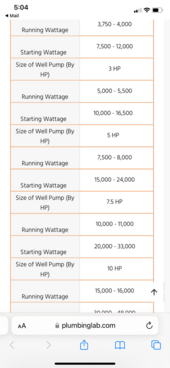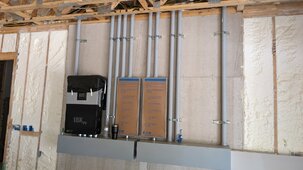Quattrohead
Solar Wizard
100%. DC must go in metal conduit.I would suggest that any PV containing conduit, junction box or breaker/surge arrestor box within the building structure be within approved metal.
The gray conduit is fine for AC.
I am putting a 10x10x4 metal box in for the 3x Midnite solar surge arrestors.




